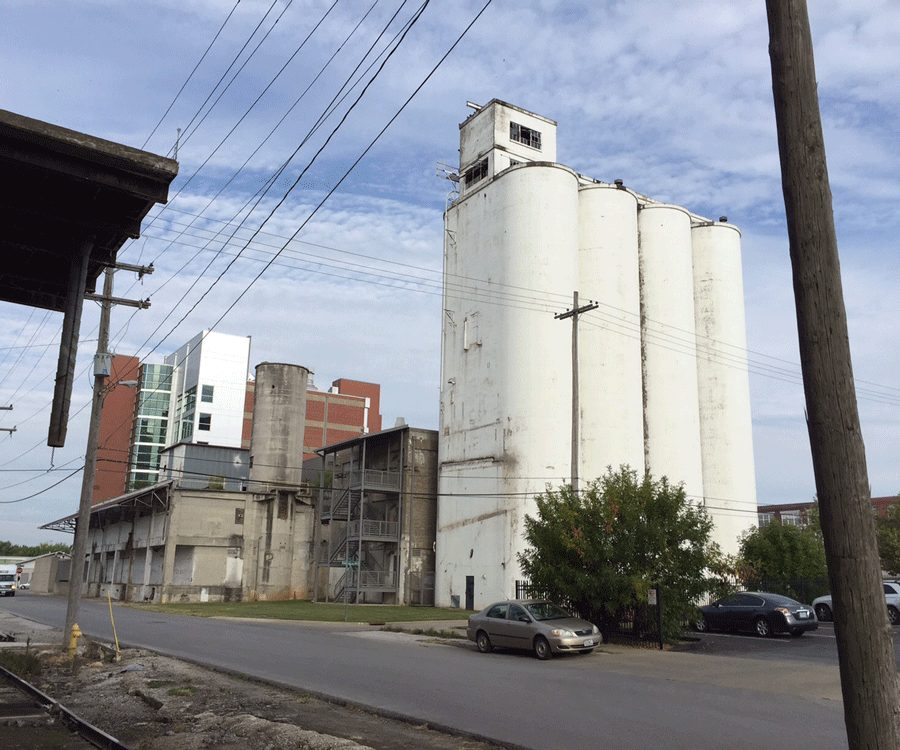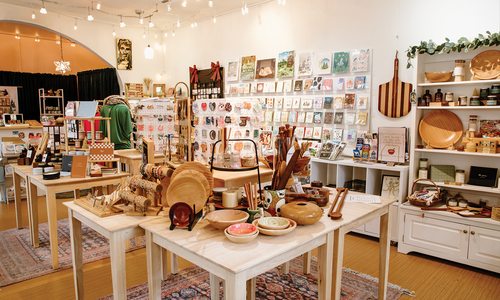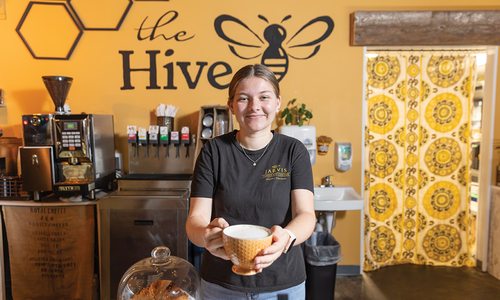
Life
Vertical Innovations Farming Project
A 417-land startup is working to bring high-tech vertical farming techniques to vacant structures in downtown Springfield.
Written by Stephanie Towne Benoit | Photo courtesy Vertical Innovations
Oct 2016

Less than 2,000 square feet. That’s the footprint size that Vertical Innovations, an urban agricultural startup, will need to produce 1 million pounds of lettuce per year starting as early as 2017. What’s equally astounding is the Springfield-based venture’s home base: the towering MFA grain elevators and silos that have long defined Springfield’s downtown skyline but have fallen into disuse over time.
“These [are] beautiful diamonds in our agriculture history sitting idle,” says Paul Tinlin, one of the startup’s partners. That dormancy will be over soon thanks to Vertical Innovations’ bold vision to harness hydroponics, aquaculture and greenhouse technology to grow pesticide-free, high-quality lettuce, leafy greens and eventually mushrooms and seafood in the silos.
Although housing the operation in the structures might seem strange, partner and former contractor Jim Kerns, who came up with the concept and spearheaded it early on, says they are surprisingly ideal. “Everything that we do is driven by the structure itself because we are taking industrial agricultural buildings, and we are using them for industrial purposes,” Kerns says. “They are perfectly designed structures for what we need to do with controlled environment growing.” For example, each silo’s cylindrical shape can accommodate about two dozen hydroponic platforms, which equates to roughly 12.5 acres of growing space. And thanks to thick concrete, the buildings are well-insulated and protected from the elements, allowing produce to grow even during chilly or inclement weather. “From the farming side, it gives us the opportunity to grow all year round,” says Tinlin, who also owns and operates Morning Glory Farm. “It doesn’t matter what the weather is. It could be a hurricane; it could be raining; it could be hailing.”
The team forecasts that Vertical Innovations’ production model will be sustainable and efficient in numerous ways. Not only are they putting a derelict structure to good use, but they are also growing food without clearing a single new acre. “The one thing everybody says is they’re not making any new farmland,” says fellow partner and legal counsel David Geisler. “Well, we are.”
There’s also water usage. Kerns estimates that by using hydroponics and growing in a closed environment, the system as a whole will be 95 percent more water efficient than traditional farming. For example, typical irrigation systems tend to lose water through evaporation, which is less of an issue with hydroponics. Plus, rather than unused water seeping into the soil, it is recirculated for later use. .png)
The team hopes its production model leads to reliable—and remarkably fresh—products month after month starting as early as next spring for area grocers, restaurants, schools, hospitals and others. “The stuff that people will buy, receive and eat on their buffets or have at hospitals or schools or whatever, it will be hours old,” Kerns says. “It will be delivered that morning or that day, even in January.”
Although the team will be producing large quantities of produce if all goes smoothly, they plan to primarily sell what they grow within 250 miles of Springfield in an effort to maintain a minimal carbon footprint and make a positive impact locally. “We are focused on Springfield first,” Geisler says. “This is our home. We all live here. This is our opportunity to make an impact on the Springfield area hopefully for a long time. And there’s no better way to impact our local area than to provide a sustainable food source because we believe that food is the next gold.”
Beyond creating a year-round source of healthy food for the community, the team has an even bigger goal: helping chart a course for 417-land to become a beacon of sustainability and to encourage other farmers, producers and businesses in America to solve looming food production issues. “What if we could be called Sustainable City USA in a matter of five years?” Kerns posits. They also hope to one day replicate their one-of-a-kind model in other cities with similar empty structures. All that may seem ambitious, but given their progress and bold vision, things are definitely looking up.












